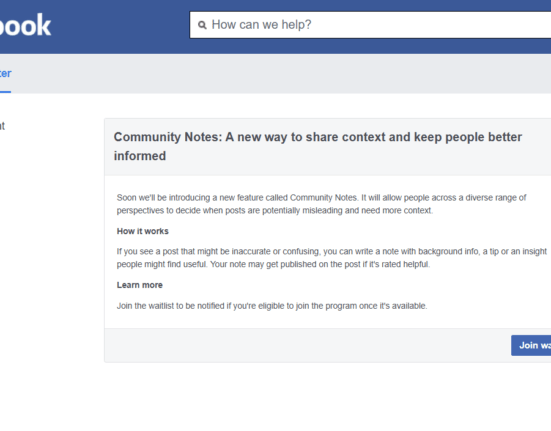Employee engagement is crucial for a company’s success, driving productivity, innovation, and retention. For business owners, understanding the key employee engagement questions can provide insights into their team’s needs and morale. This article delves into 51 essential questions that can help enhance employee satisfaction and overall workplace harmony. By exploring these questions, business owners can foster a more motivated and committed workforce, leading to a thriving and resilient organization.
List of Important Employee Engagement Questions with Their Answers
How will you understand that your employees are engaged at your organization? Here are the essential employee engagement questions that will help you survey your employees. Let’s start.
Also Read: What Is the Purpose of Employee Engagement?
1. How do employees feel about the company’s mission and values?
Employees who resonate with the company’s mission and values feel more motivated and engaged. Discussing core principles regularly helps reinforce these values, ensuring that employees understand and align with the company’s goals, which boosts overall employee engagement.
2. Do employees find their work meaningful?
Employees who find their work meaningful experience higher engagement. When they see the impact of their contributions, they feel valued and motivated. Ensuring tasks have purpose and significance can help employees stay committed and enthusiastic about their roles.
3. Do employees receive adequate recognition for their efforts?
Regular recognition fosters a positive work environment and boosts morale. Appreciated employees tend to stay engaged and motivated. Implementing a consistent recognition program that acknowledges achievements can significantly enhance employee engagement and satisfaction.
4. Is communication within the team effective?
Clear and open communication is essential for fostering collaboration and trust. Effective communication helps resolve issues quickly and ensures employees feel heard and valued. Prioritizing communication can greatly enhance employee engagement and team cohesion.
5. Do employees have the resources needed to do their jobs well?
Access to necessary resources ensures employees can perform tasks efficiently. Providing the right tools and support increases engagement and productivity. Regularly assessing resource needs and addressing any gaps can help maintain high levels of employee engagement.
6. Do employees feel their opinions are valued at work?
Valuing employee opinions fosters a sense of belonging and respect. When employees feel heard, they are more likely to contribute ideas and stay engaged. Creating an environment that encourages feedback can significantly enhance overall employee engagement.
7. Do employees see opportunities for career growth here?
Providing clear career paths and growth opportunities is crucial for employee engagement. Employees who see a future in the company are more motivated to excel and stay committed. Offering development programs can help retain talent and boost engagement.
8. How would employees rate the work-life balance here?
A healthy work-life balance is key to maintaining employee well-being. Companies that prioritize this aspect see higher employee engagement and satisfaction. Encouraging flexible schedules and respecting personal time can help employees manage stress and remain productive.
9. Does the company support employees’ professional development?
Supporting professional development helps employees feel valued and invested in. Offering training programs, workshops, and opportunities for advancement boosts employee engagement and keeps them motivated to improve their skills and contribute to the company.
10. Are employees satisfied with their compensation and benefits?
Fair compensation and comprehensive benefits are crucial for retaining talent. Employees who feel fairly compensated are more likely to remain engaged and loyal to the company, reducing turnover rates and fostering a positive work environment.
11. Do employees feel a sense of job security?
Job security significantly influences employee engagement. When employees feel secure in their roles, they are more likely to stay motivated and committed. Clear communication about company stability and future prospects can help alleviate job security concerns.
12. Is the work environment conducive to productivity?
A positive and supportive work environment enhances employee engagement. Ensuring the workspace is comfortable, safe, and equipped with necessary amenities helps employees stay focused and productive, leading to better overall performance.
13. Do employees feel their work is adequately challenging?
Challenging work keeps employees engaged and prevents boredom. Providing opportunities for employees to take on new challenges and responsibilities helps maintain their interest and motivation, contributing to personal growth and job satisfaction.
14. Are employees satisfied with the level of autonomy they have?
Granting employees autonomy in their work fosters trust and empowerment. Employees who feel they have control over their tasks are more engaged and motivated, leading to increased innovation and productivity within the organization.
15. Do employees have a clear understanding of their roles and responsibilities?
Clarity in roles and responsibilities prevents confusion and enhances employee engagement. When employees know what is expected of them, they can focus on their tasks effectively, leading to better performance and a more organized work environment.
16. How well do employees understand the company’s goals?
Ensuring employees understand the company’s goals aligns their efforts with organizational objectives. Regularly communicating goals and progress helps maintain employee engagement and commitment to achieving these targets, fostering a sense of purpose and direction.
17. Do employees feel their workload is manageable?
A manageable workload is crucial for preventing burnout and maintaining employee engagement. Regularly assessing and adjusting workloads ensures employees can perform their tasks effectively without feeling overwhelmed, leading to sustained productivity and satisfaction.
18. Is there a strong sense of teamwork within the organization?
Teamwork fosters collaboration and mutual support among employees. Encouraging team-building activities and promoting a collaborative culture enhances employee engagement and creates a more cohesive work environment, contributing to overall company success.
19. Do employees feel their feedback is acted upon?
Acting on employee feedback shows that their opinions are valued. When employees see that their suggestions lead to positive changes, they feel more engaged and invested in the company’s success, fostering a culture of continuous improvement.
20. Are employees satisfied with the level of transparency from management?
Transparency from management builds trust and openness. Keeping employees informed about company decisions and changes ensures they feel included and valued, which enhances employee engagement and morale throughout the organization.
21. How effective are the company’s onboarding processes?
A smooth onboarding process helps new employees integrate quickly and feel welcome. Effective onboarding ensures they understand their roles and the company culture, boosting early engagement and long-term retention, and setting a positive tone for their tenure.
22. Do employees have opportunities to provide feedback regularly?
Regular feedback opportunities allow employees to voice their concerns and suggestions. Creating channels for open communication helps address issues promptly and maintain high levels of employee engagement, ensuring employees feel heard and valued.
23. Are employees satisfied with their work relationships?
Positive work relationships contribute to a supportive and collaborative environment. Encouraging social interactions and team activities helps build strong bonds, enhancing employee engagement and job satisfaction, and fostering a sense of community within the workplace.
24. Do employees feel the company culture aligns with their values?
Alignment between company culture and employee values fosters a sense of belonging. When employees feel the company’s culture reflects their own values, they are more likely to stay engaged and committed, contributing positively to the organization’s environment.
25. How effective are the company’s performance review processes?
Effective performance reviews provide valuable feedback and set clear expectations. Regular, constructive reviews help employees understand their strengths and areas for improvement, boosting their engagement and motivation, and driving continuous personal and professional development.
26. Do employees feel they have opportunities to learn and grow?
Continuous learning and growth opportunities keep employees engaged and motivated. Offering training programs and career development initiatives helps employees enhance their skills and advance within the company, leading to higher retention and satisfaction.
27. Are employees satisfied with the company’s leadership?
Effective leadership inspires trust and confidence in employees. Leaders who communicate well, make fair decisions, and support their teams enhance employee engagement and foster a positive work environment, contributing to overall organizational success.
28. Do employees feel their work contributes to the company’s success?
Understanding the impact of their work on the company’s success boosts employee engagement. When employees see how their efforts contribute to organizational goals, they feel valued and motivated to excel, fostering a sense of purpose and achievement.
29. Are employees comfortable sharing their ideas and suggestions?
Creating an environment where employees feel safe to share ideas encourages innovation. Encouraging open communication and valuing employee input fosters a culture of creativity and engagement, leading to continuous improvement and a dynamic workplace.
30. Do employees feel they are part of a cohesive team?
A cohesive team enhances collaboration and support among employees. Promoting teamwork and unity helps build strong relationships, boosting employee engagement and overall productivity, and creating a more harmonious and effective work environment.
31. How well does the company handle employee concerns and grievances?
Addressing employee concerns promptly and effectively maintains trust and satisfaction. A responsive and fair approach to grievances ensures employees feel heard and respected, enhancing their engagement and loyalty to the company.
32. Are employees satisfied with the company’s rewards and recognition programs?
Effective rewards and recognition programs boost morale and motivation. Regularly acknowledging employee achievements and providing meaningful rewards helps maintain high levels of engagement and job satisfaction, contributing to a positive and motivated workforce.
33. Do employees feel they have a healthy work-life balance?
Promoting work-life balance reduces stress and enhances well-being. Offering flexible work arrangements and encouraging time off helps employees maintain a healthy balance, leading to increased engagement and productivity, and overall job satisfaction.
34. How well does the company support employee wellness?
Supporting employee wellness initiatives promotes overall well-being. Providing resources for physical and mental health, such as wellness programs and support services, helps employees stay healthy and engaged, contributing to a more productive and satisfied workforce.
35. Are employees satisfied with the opportunities for internal mobility?
Opportunities for internal mobility keep employees engaged and motivated. Providing pathways for lateral moves and promotions within the company helps employees see a future in the organization and remain committed, reducing turnover and enhancing engagement.
36. Do employees feel the company values diversity and inclusion?
A diverse and inclusive workplace fosters a sense of belonging and respect. Promoting diversity and inclusion initiatives ensures all employees feel valued, which enhances their engagement and overall satisfaction, contributing to a more dynamic and innovative work environment.
37. How well does the company support remote work?
Supporting remote work options provides flexibility and reduces commute stress. Offering the necessary tools and resources for remote work helps employees stay productive and engaged, even outside the traditional office setting, contributing to overall job satisfaction.
38. Are employees satisfied with the level of innovation in the company?
Encouraging innovation keeps the company dynamic and forward-thinking. Providing opportunities for employees to contribute to new ideas and projects fosters creativity and engagement, leading to continuous improvement and a competitive edge in the market.
39. Do employees feel they have opportunities to collaborate across departments?
Cross-departmental collaboration enhances knowledge sharing and innovation. Encouraging employees to work with different teams helps build diverse skill sets and perspectives, boosting overall engagement and organizational success, and fostering a more integrated workplace.
40. Are employees satisfied with the company’s approach to work-life integration?
Work-life integration promotes harmony between personal and professional lives. Supporting flexible schedules and understanding personal commitments helps employees manage their responsibilities effectively, leading to higher engagement and satisfaction, and reducing stress.
41. How well does the company communicate its goals and objectives?
Clear communication of goals and objectives aligns employee efforts with organizational priorities. Regular updates and transparent communication help employees understand their role in achieving company targets, boosting engagement and ensuring everyone is working towards the same vision.
42. Are employees satisfied with the company’s commitment to social responsibility?
Commitment to social responsibility enhances company reputation and employee pride. Supporting community initiatives and sustainable practices shows employees the company cares about more than just profits, boosting engagement and fostering a positive corporate image.
43. Do employees feel they have a voice in decision-making processes?
Involving employees in decision-making fosters a sense of ownership and engagement. Encouraging input and considering employee perspectives in company decisions helps them feel valued and respected, leading to higher motivation and commitment.
44. How well does the company support teamwork and collaboration?
Supporting teamwork and collaboration creates a cohesive work environment. Providing tools and opportunities for team projects helps employees work together effectively, boosting engagement and overall productivity, and fostering a culture of cooperation and mutual support.
45. Are employees satisfied with the company’s efforts in employee development?
Investing in employee development shows a commitment to their growth. Offering training and development programs helps employees enhance their skills and advance their careers, increasing engagement and retention, and ensuring a more skilled and motivated workforce.
46. Do employees feel the company provides a supportive work environment?
A supportive work environment fosters trust and well-being. Providing resources and support for employees’ needs helps them feel cared for, leading to higher engagement and job satisfaction, and creating a more positive and productive workplace.
47. How well does the company handle changes and transitions?
Managing changes and transitions effectively maintains stability and trust. Clear communication and support during changes help employees adapt smoothly, reducing anxiety and maintaining engagement, and ensuring the organization remains resilient and focused.
48. Are employees satisfied with the company’s approach to performance management?
Effective performance management provides clear expectations and constructive feedback. Regular evaluations and goal-setting help employees understand their progress and areas for improvement, boosting engagement and motivation, and driving continuous personal and professional development.
49. Do employees feel their work aligns with their personal goals?
Aligning work with personal goals enhances motivation and satisfaction. Encouraging employees to pursue their interests and align their tasks with personal aspirations helps them stay engaged and fulfilled, contributing to higher retention and overall job satisfaction.
50. How well does the company support employee autonomy?
Supporting employee autonomy fosters trust and empowerment. Allowing employees to make decisions and manage their tasks independently helps them feel in control and engaged in their work, leading to higher motivation and innovation, and a more dynamic workplace.
51. Are employees satisfied with the company’s approach to recognition and rewards?
A comprehensive recognition and rewards program boosts morale and motivation. Regularly acknowledging employee contributions and providing meaningful rewards helps maintain high levels of engagement and job satisfaction, creating a more positive and motivated workforce.
Top Employee Engagement Questions Answered
These employee engagement questions help business owners understand key factors. These factors influence employee satisfaction and productivity. Using insights from these questions, business owners can implement effective strategies. These strategies will foster a more engaged workforce. Additionally, they will create a more motivated team. This leads to higher productivity and job satisfaction.
What are you waiting for? Start crafting your employee engagement survey today!
Additional Resources:












